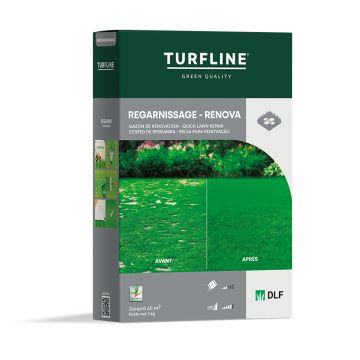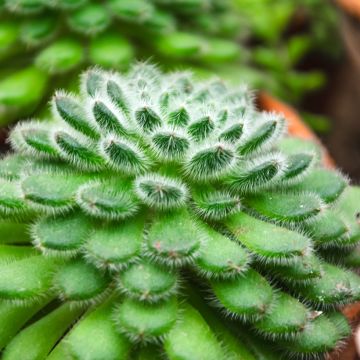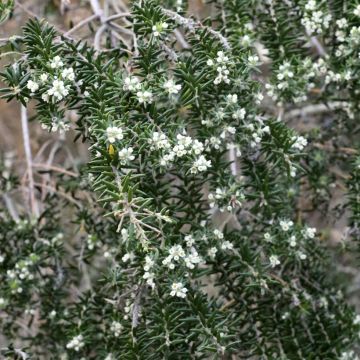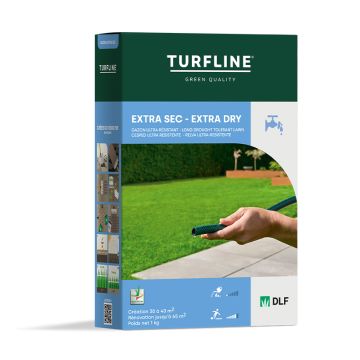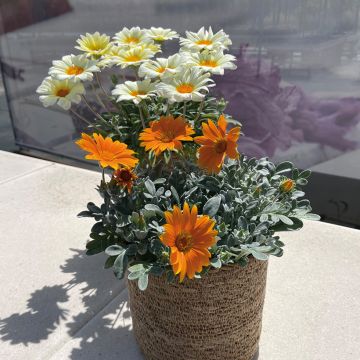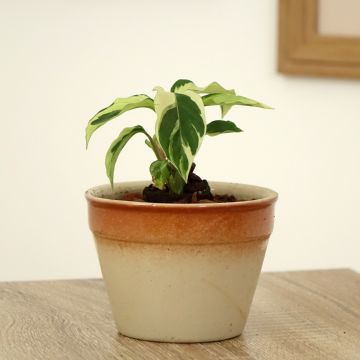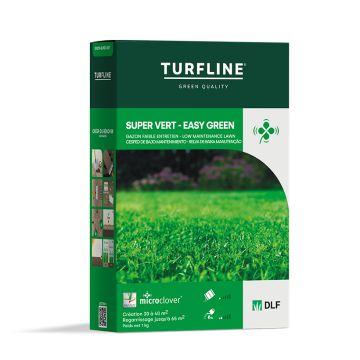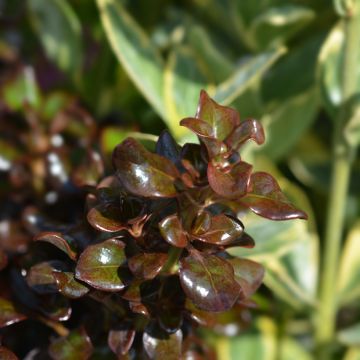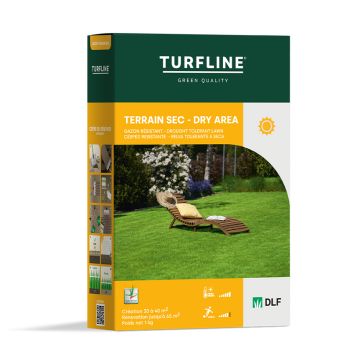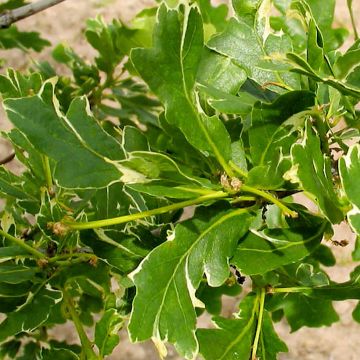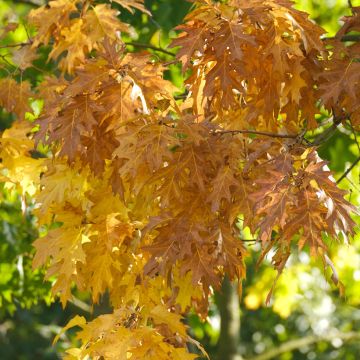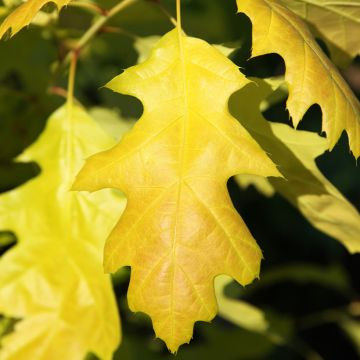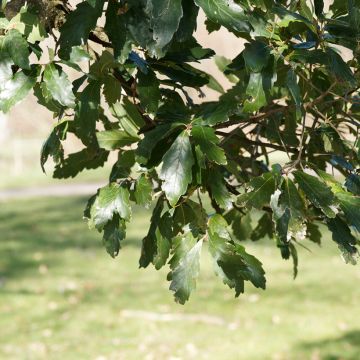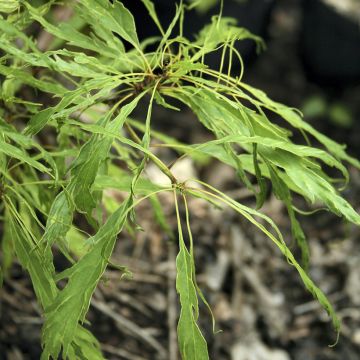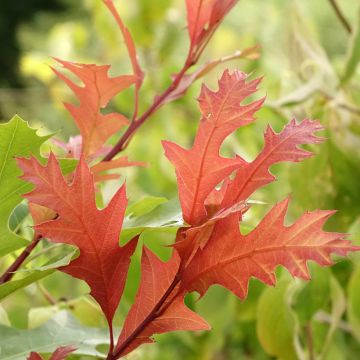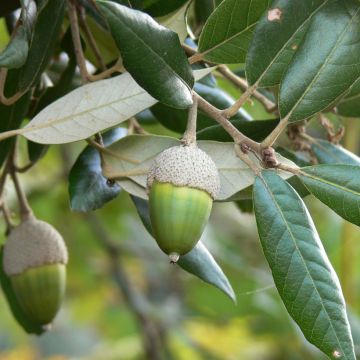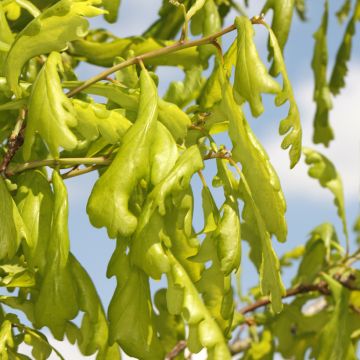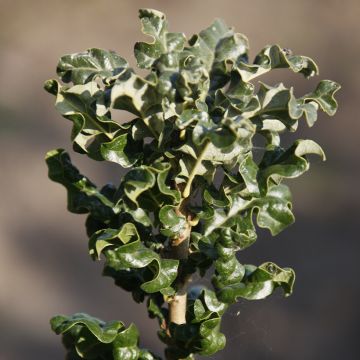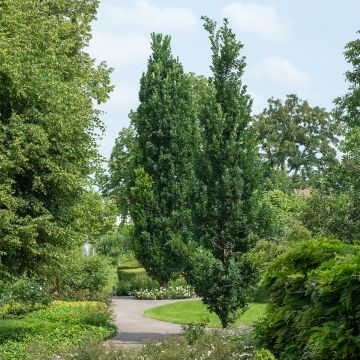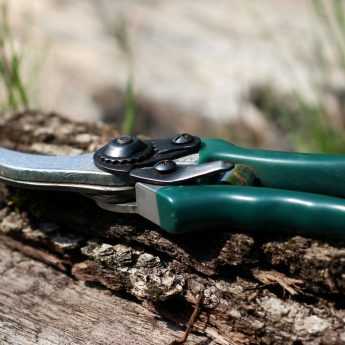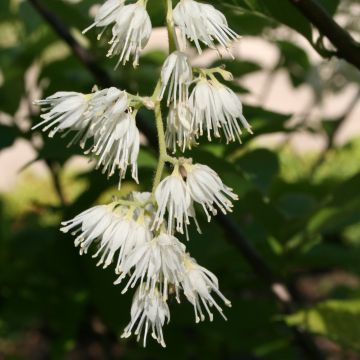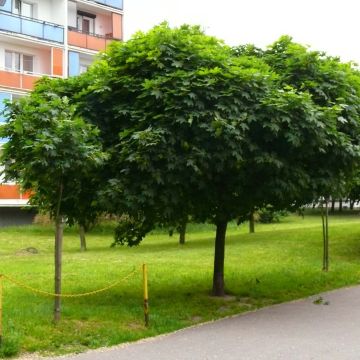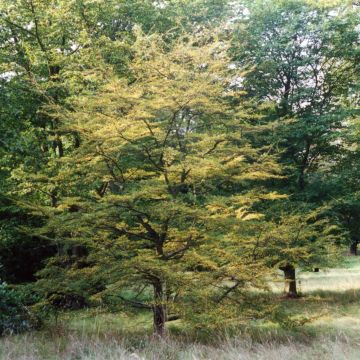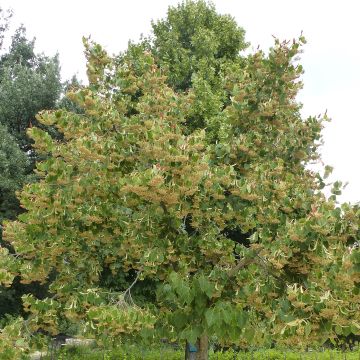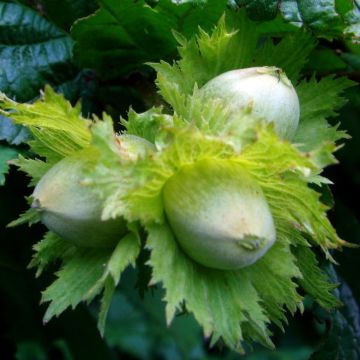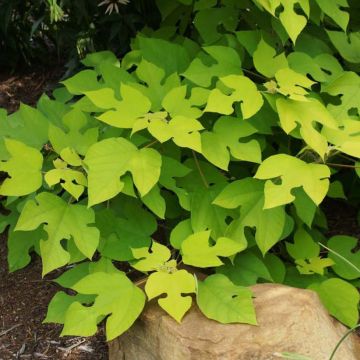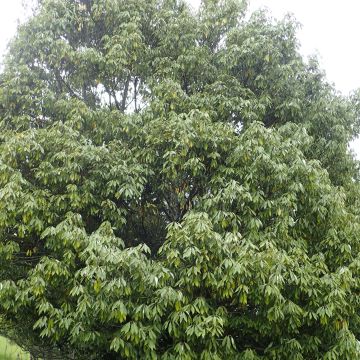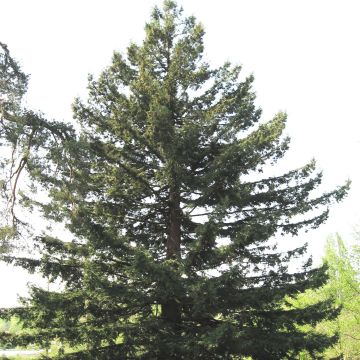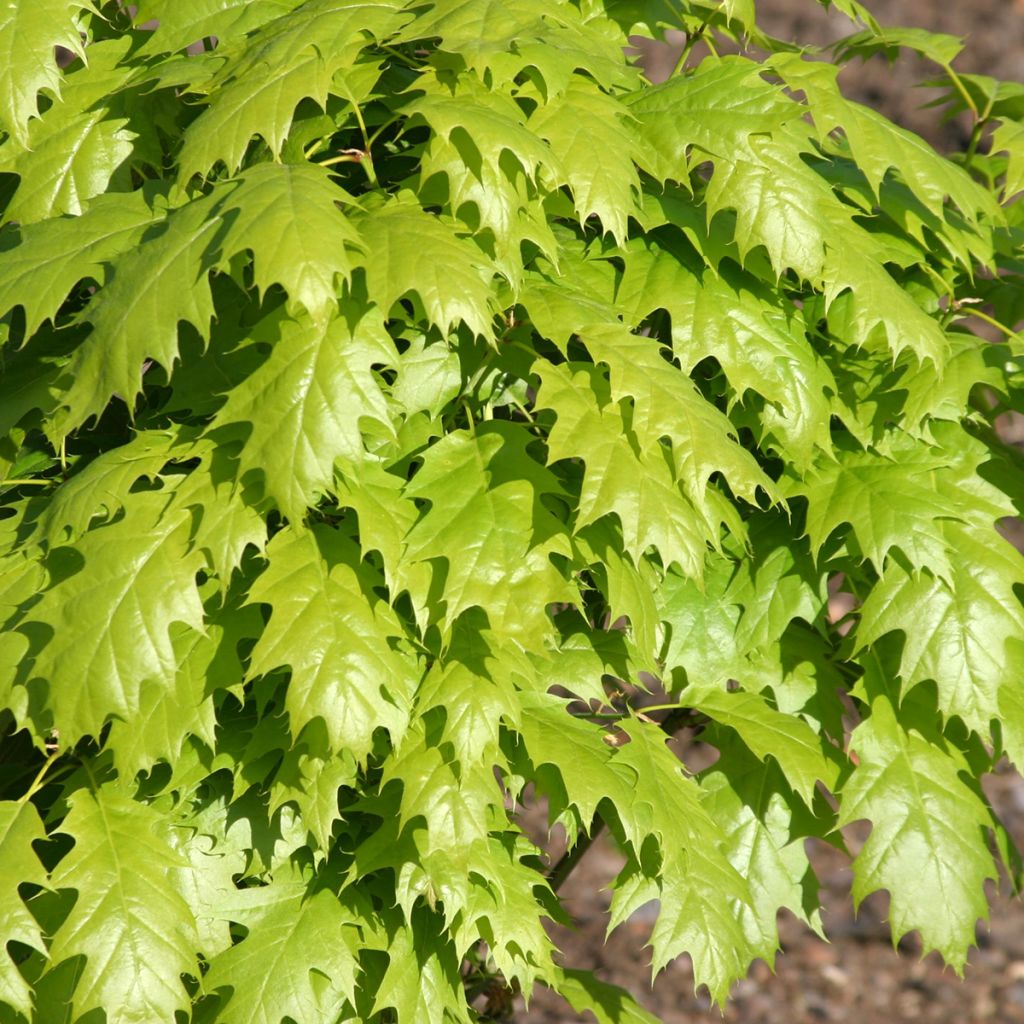

Quercus rubra Haaren - Red Oak
Quercus rubra Haaren - Red Oak
Quercus rubra Haaren
Northern Red Oak, Red Oak
Why not try an alternative variety in stock?
View all →This plant carries a 24 months recovery warranty
More information
We guarantee the quality of our plants for a full growing cycle, and will replace at our expense any plant that fails to recover under normal climatic and planting conditions.
From €7.90 for pickup delivery and €6.90 for home delivery
Express home delivery from €8.90.
Does this plant fit my garden?
Set up your Plantfit profile →
Description
Quercus rubra 'Haaren' is a rare variety of American red oak, appreciated for its dwarf and sculptural habit. This slow-growing, small semi-deciduous tree, with its neat architecture, is easy to use in small gardens where it can fit into more contemporary design concepts. The highly evolving colouration of its large leaves, initially tender green in spring turning to shiny dark green in summer and becoming reddish-orange in autumn, greatly contributes to the animation of the garden. This variety prefers a semi-shaded or sunny but not too hot exposure. It is a very hardy, original tree that thrives in humus-bearing,moistsoil, neutral to acidic and non-calcareous. Its positioning in the garden requires choosing a location from which it can be observed and admired, to take on the role of a beautiful specimen, low-maintenance and attractive all year round.
Quercus rubra or borealis, commonly known as American red oak, is a tree of the beech family, just like beech and chestnut. This large tree, native to eastern North America, is particularly widespread in the state of New Jersey in the United States and the province of Prince Edward Island in Canada. In 1724, it was introduced to Europe where it was planted to repopulate forests. Its record growth, between 20 and 30 metres in height at maturity (20 to 30 years), made it more attractive than European oak at that time. However, this botanical use should not distract us from its classic beauty. It has a symmetrical pyramidal habit, a straight trunk, a well-developed crown, and upright massive branches that are covered with large leaves measuring between 12 and 22 cm in length. They turn red in autumn and then brown, persisting on the tree for part of the winter (marcescent foliage). With rapid growth, the branches can extend by one metre per year during the first ten years. Some specimens can reach 50 metres in height and have a lifespan exceeding 250 years.
The cultivar 'Haaren' is a natural mutation originating from the former municipality of Haaren in the North Brabant province of the Netherlands. It distinguishes itself from the species by its small size and rounded habit. At maturity, it can reach a height of 2 to 3 metres with a spread of 1.5 to 2 metres and its foliage takes on a rounded and compact shape. It branches out on one or several trunks covered with greyish bark, smooth when young, then scaly with age. The leaves, bordered by 3 to 5 pointed or rounded lobes on each side, are dark green on the upper side and light green on the underside, measuring from 15 to 25 cm in length. They then turn orange to bright red in autumn. In late autumn, they turn brown and persist on the branches until winter. This American oak develops almost insignificant flowers in early spring (April-May), on the current year's young branches, which are followed by decorative brown-red acorns. Few in number, these hemispherical acorns about 2 cm in diameter, mature in the second year. They are held by a scaly cup and develop on short stalks.
The Haaren American Oak is an elegant and graceful small tree that brings a touch of originality and refinement to your space. It is a hardy oak tree resistant to winter cold, capable of withstanding temperatures down to -25°C. Its incredible hardiness makes it one of the best substitutes for Japanese maple during very harsh winters or overly wet conditions. It grows slowly and prefers fertile and moderately moist soil. Alkaline limestone soils are not suitable for this tree species. A sunny exposure is preferable, but it also appreciates slightly shaded areas. It can be planted alone, as a focal point to admire its stature, or in combination with other shrubs with foliage or flowers, such as dogwoods, spiraeas with beautiful autumn colours, ground cover roses, dwarf buddleias, or small silver-leaved willows. When grown in a large pot, it can bring life to a terrace or patio with Japanese maples for example. Tolerating pruning well, its architectural habit is suitable for bonsai training.
Plant habit
Flowering
Foliage
Botanical data
Quercus
rubra
Haaren
Fagaceae
Northern Red Oak, Red Oak
Cultivar or hybrid
Other Oak
View all →Planting and care
Plant your Quercus rubra Haaren in autumn or winter, outside of frost periods. Choose a shaded or sunny but not too hot location, in a deep soil. This tree does not tolerate calcareous and/or alkaline soils well. With great hardiness, it thrives in all types of soil, even clayey, except for excessively compact or suffocating soil. It withstands drought and extreme temperature variations, from intense cold to scorching heat. If necessary, create a drainage pit with rocks if your soil is suffocating. If your soil is poor, adding leaf compost will be beneficial. Water regularly during the summer following planting and ensure it is protected from prolonged drought for another year; mulching can help keep the soil moist and space out watering. It is perfectly frost-resistant. Stake young plants and then let nature take its course. Pruning is unnecessary, except for young trees that do not grow in a balanced manner. In February, before vegetation resumes, remove dead or diseased wood or any wood that affects the tree's shape.
For container planting: place a layer of gravel or clay balls at the bottom of the pot to facilitate drainage. Add a layer of soil and then place the plant and cover it with a mixture of 2/3 garden soil, 1/3 compost or well-rotted soil. Every spring, replace the top layer with fresh compost. Water regularly and moderately. At the end of autumn, protect the pot with insulation before winter frosts arrive.
Planting period
Intended location
Care
Planting & care advice
This item has not been reviewed yet - be the first to leave a review about it.
Trees and large shrubs
Haven't found what you were looking for?
Hardiness is the lowest winter temperature a plant can endure without suffering serious damage or even dying. However, hardiness is affected by location (a sheltered area, such as a patio), protection (winter cover) and soil type (hardiness is improved by well-drained soil).

Photo Sharing Terms & Conditions
In order to encourage gardeners to interact and share their experiences, Promesse de fleurs offers various media enabling content to be uploaded onto its Site - in particular via the ‘Photo sharing’ module.
The User agrees to refrain from:
- Posting any content that is illegal, prejudicial, insulting, racist, inciteful to hatred, revisionist, contrary to public decency, that infringes on privacy or on the privacy rights of third parties, in particular the publicity rights of persons and goods, intellectual property rights, or the right to privacy.
- Submitting content on behalf of a third party;
- Impersonate the identity of a third party and/or publish any personal information about a third party;
In general, the User undertakes to refrain from any unethical behaviour.
All Content (in particular text, comments, files, images, photos, videos, creative works, etc.), which may be subject to property or intellectual property rights, image or other private rights, shall remain the property of the User, subject to the limited rights granted by the terms of the licence granted by Promesse de fleurs as stated below. Users are at liberty to publish or not to publish such Content on the Site, notably via the ‘Photo Sharing’ facility, and accept that this Content shall be made public and freely accessible, notably on the Internet.
Users further acknowledge, undertake to have ,and guarantee that they hold all necessary rights and permissions to publish such material on the Site, in particular with regard to the legislation in force pertaining to any privacy, property, intellectual property, image, or contractual rights, or rights of any other nature. By publishing such Content on the Site, Users acknowledge accepting full liability as publishers of the Content within the meaning of the law, and grant Promesse de fleurs, free of charge, an inclusive, worldwide licence for the said Content for the entire duration of its publication, including all reproduction, representation, up/downloading, displaying, performing, transmission, and storage rights.
Users also grant permission for their name to be linked to the Content and accept that this link may not always be made available.
By engaging in posting material, Users consent to their Content becoming automatically accessible on the Internet, in particular on other sites and/or blogs and/or web pages of the Promesse de fleurs site, including in particular social pages and the Promesse de fleurs catalogue.
Users may secure the removal of entrusted content free of charge by issuing a simple request via our contact form.

































